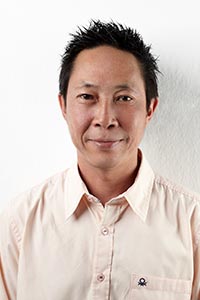The carnage at the Erawan shrine last Monday was horrifying. And what the defence minister said afterwards was also shocking.
Gen Prawit Wongsuwon said on Thursday he was less than convinced the attack was carried out by international terrorists.
His unconventional reason was drawn from an odd conclusion that no terrorist groups had emerged to take responsibility for the blast after three days.

The bomber "is anti-NCPO [National Council for Peace and Order] and anti-government, who could be disguised as a foreigner", he said.
This assessment makes no sense at all.
Gen Prawit, who is a deputy prime minister in charge of security, was not being merely off-hand in making that surprising remark.
He has been in security circles long enough to understand this kind of situation.
The only motive behind his effort to come up with some kind of assessment is an attempt to contain the damage for the sake of the country.
The defence minister and other security authorities have not completely dropped the theory of international terrorists being behind the bombing which killed 20 people and injured 130.
But they want to colour the incident as possibly an internal conflict to deflect the impact on tourism, the only sector carrying the Thai economy on its shoulders while all other economic engines run out of gas.
Unfortunately, all the signs seem to indicate that Gen Prawit's argument -- that the blast was aimed at rocking the military regime -- is too hard to believe.
Religious sites have not really been targets for bomb attacks in the southernmost provinces. Southern militants will often take aim at monks, such as the attack in Sai Buri district of Pattani on July 25 in which one monk was killed and another injured as they were taking morning alms.
But temple compounds seem to be off-limits, presumably to prevent the situation in the troubled region from spiralling into a religious conflict and getting completely out of control.
That scenario would benefit neither Buddhist nor Muslim living in Narathiwat, Pattani, Yala and the Muslim-dominated districts of Songkhla, and beyond.
Was there a political motive behind the shrine blast at Ratchaprasong intersection? History shows it would be unlikely, as "political bombs" have never been triggered at religious locations before.
State buildings and the houses of politicians or officials are usually the prime targets, such as the National Anti-Corruption Commission office in March last year.
Government spokesman Sansern Kaewkumnerd was even quicker than Gen Prawit in pointing to an anti-coup element as a main culprit when he gave an analysis just hours after the bombing.
That was why the Pheu Thai Party acting secretary-general Phumtham Wechayachai came out to attack the government for trying to shift the focus of the investigation onto a political motive.
"The incident shouldn't be used as a tool to discredit or destroy the government's critics. Any actions should start with facts and all possible motives must be considered, whether it is because of a foreign policy move, or a conflict, or difference in political ideology," he said in no uncertain terms.
In fact, it would be an unwise move for those who oppose Prime Minister Prayut Chan-o-cha to plant a bomb to gain international attention as it could give him more justification to prolong his rule on the ground that political instability remains more than one year after he engineered the coup.
Thai politics is not likely to start to heat up again until the draft charter is put to a referendum, if it is passed in a vote by the National Reform Council on Sept 6.
One thing that does look convincing is the bomber and his accomplices, if there are any, intentionally picked the shrine as a good location to target tourists.
The place is popular with visitors from China and Chinese from other countries including Hong Kong, Malaysia and Singapore.
If the analysis of Gen Prawit, that the bombing was politically motivated, is true, that means political attacks are moving to an unprecedented stage, as they are being escalated to a newer, more dangerous level. Religious places are no longer excluded from being targeted.
What is even worse about that scenario is that foreigners could become a tool to serve those with political motives. Tourists are as vulnerable as Thais when it comes to being a victim for a cause.
Let's hope that Gen Prawit's comment does not hold water.
Saritdet Marukatat is digital media news editor, Bangkok Post.
